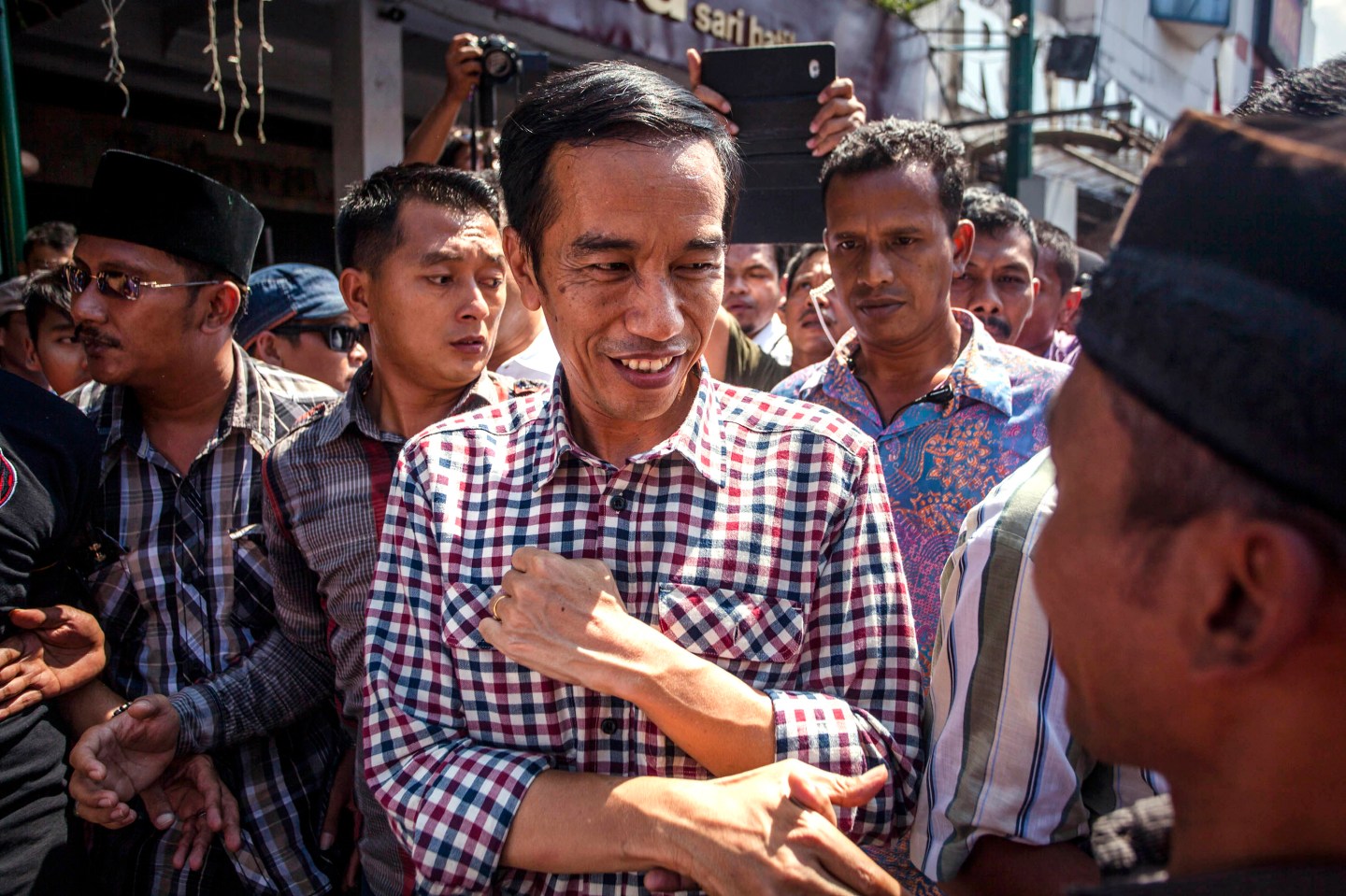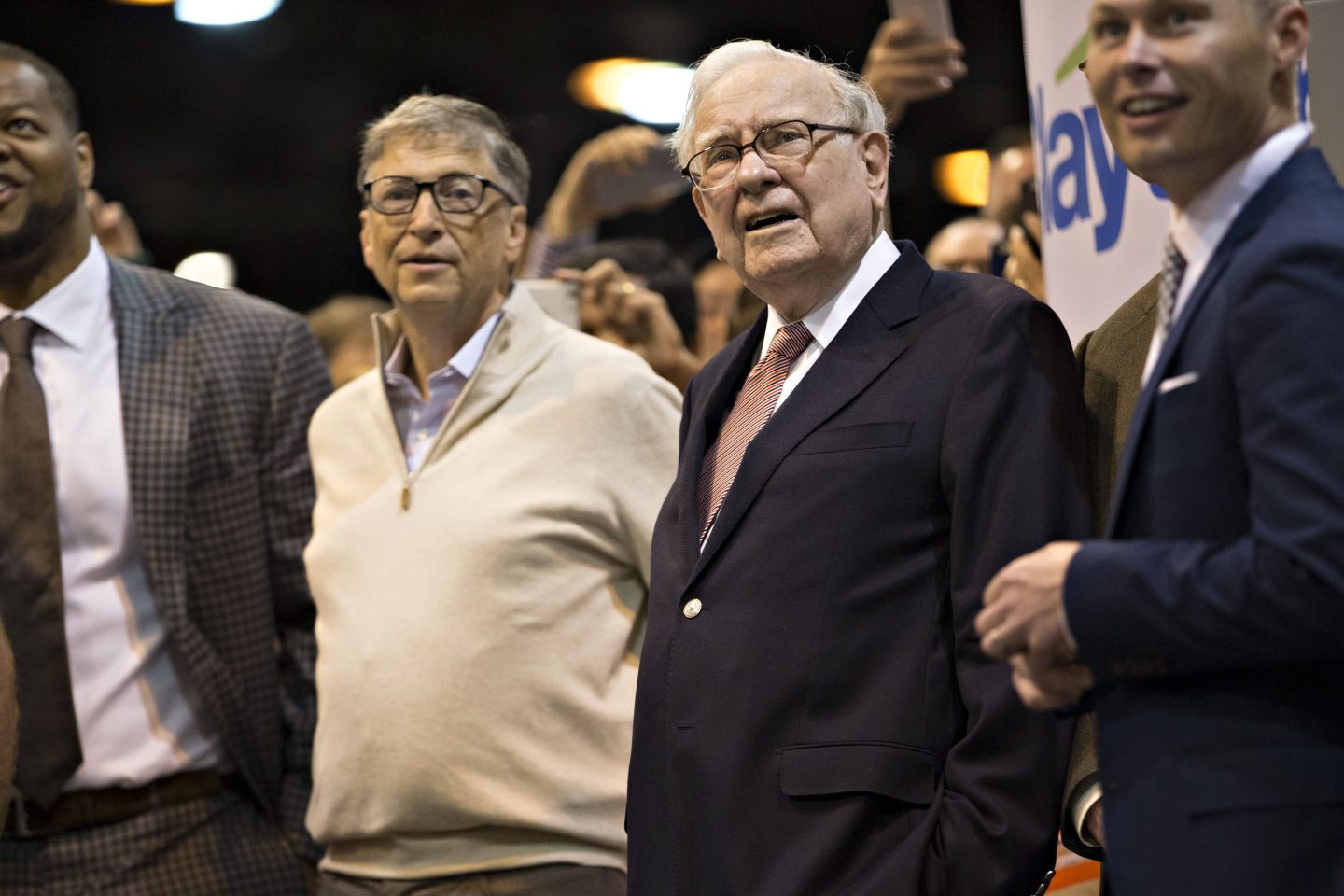
But back then, Widodo was just getting started. In 2005, he became mayor of Solo—the very city whose slums he had grown up in—and did so good a job busting corruption and cleaning things up, that in 2012, he unseated incumbent Fauzi Bowo to become governor of Jakarta, the sprawling megacity. Then this March, he became his party’s nominee to become the President of Indonesia (that same month, FORTUNE ranked him No. 37 on its 2014 list of 50 World’s Greatest Leaders.) Tomorrow — June 9 in Indonesia — it all comes to a head. If Jokowi prevails in the neck-and-neck race against his opponent, former military general Prabowo Subianto, he’ll be leading the fourth largest nation on Earth.
“There are not many mayors who can make a leap to the presidency in the span of 24 months,” Jeffrey Winters, a political scientist at Northwestern University told FORTUNE via an email interview. “Jokowi winning the presidency having only recently been the mayor of Solo is like Dennis Kucinich winning the presidency from Cleveland. The difference is Jokowi actually has a shot at victory.”
With his rags-to-riches story and record for real change, Widodo, who campaigns in folksy red-and-blue checked shirts and is popularly known as “Jokowi,” has energized an Indonesian populace hungry for a break from the status quo. The politician has drawn comparisons to Obama (circa 2008), inspired a hit song “Two-Finger Salute,” won cred for his can-do competence and earned a slight (though perhaps not statistically significant) 3% edge in recent polls.
Yet, just months ago, a Jokowi victory appeared almost a sure thing—holding an almost 40% lead over Prabowo, a candidate not allowed in the U.S. For past human rights violations and who, as the former son-in-law of Suharto, the Indonesian dictator overthrown 16 years ago, is certainly among the nation’s entrenched powers.
What happened?
“Jokowi’s campaign has been a fragmented mess,” says Winters. “For undecided Indonesians, the weak campaign reinforced doubts about whether Jokowi was really ready for prime time.”
Among the issues: the candidate over-scheduled public appearances, lacked a consistent message, and has been a technical and not particularly inspiring orator.
Michael Buehler, a lecturer at University of London’s School of Oriental and African Studies (SOAS) says Jokowi is not the only one at fault in his lackluster campaign. The politician has been undermined by his own party’s machinery and is the victim of various smear campaigns that have—not unlike claims made about Obama—insinuated that he is not who he says he is. (The attacks maintain that Jokowi is secretly a Christian…or a Communist…or Chinese…or originally from Singapore…or all of the above.) Buehler adds that Prabowo’s slick, focused campaign has been aided by the work of a former George W. Bush political operative—a first in Indonesian politics.
In recent months, Prabowo has effectively, if “ironically,” positioned himself as an outsider and won support for his nationalistic and populist agendas. (The candidates’ platforms are not all that different, though Buehler says Jokowi has “better ideas.”)
But, says Winters: “Prabowo has been preparing for the presidency for three decades and actively pursuing the office and building a party machine for over ten years. It is Jokowi’s candidacy that is surprising, not Prabowo’s.”
Right now, both scholars say the election is too close to call—and in any case, is unlikely to bring about the profound change Indonesia needs. During the course of the campaign, Jokowi has drawn closer to some of the entrenched interests that he is, in theory, running against—showing that for now, perhaps, there are limits to just how high Indonesia’s self-made, corruption-busting leader from the slums can climb on his own.













